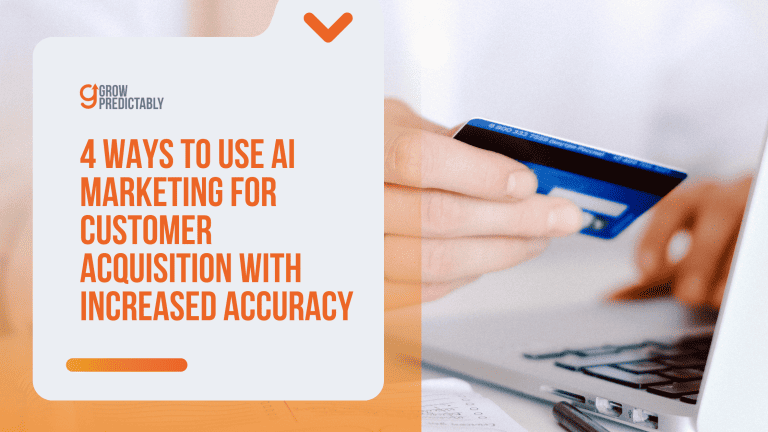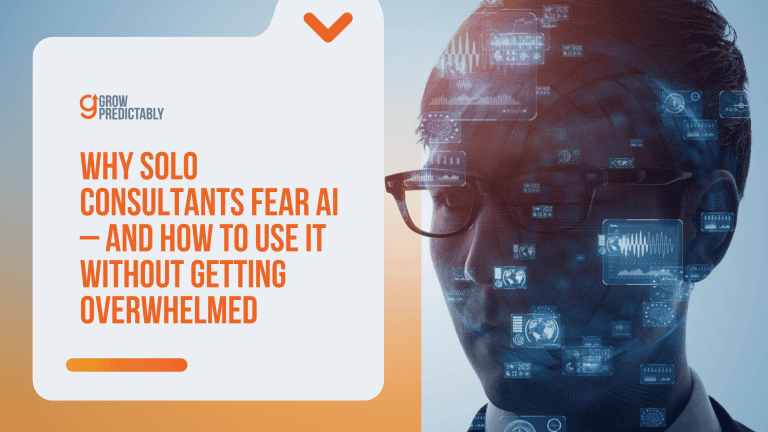How Consultants Can Master Answer Engine Optimization in 5 Steps
The way people find consultants online is changing fast.
According to data from SEOptimer, nearly 13% of Google searches now show AI-generated answers at the top of the page—that number has doubled just this year.
For you as a consultant, this means fewer people are clicking through to your website.
Instead, they’re getting their answers directly from AI, and you’re competing just to get mentioned in those responses.
Here’s what’s happening: your potential clients aren’t just typing keywords into Google anymore.
They’re asking full questions to ChatGPT, Google Gemini, and Perplexity, expecting instant, complete answers.
To stay visible, you need to move beyond traditional SEO and adopt a solid AEO strategy for consultants that helps AI platforms find, understand, and recommend your expertise.
The good news?
AI platforms favor content that’s easy to understand, directly answers real questions, and comes from trusted experts.
This article will walk you through exactly how to position yourself as that trusted expert—the one AI recommends when someone asks a question in your field.
When you get this right, AI visibility turns into real client conversations and signed contracts.
TL;DR
To thrive in the era of AI search, consultants must adopt Answer Engine Optimization (AEO). Align your consulting expertise with AI systems to boost visibility on AI-powered answer engines and generate high-ticket leads. Use schema markup, answer client-specific FAQs, and keep personalized content updated. This helps you stay visible in AI-generated answers and can turn that visibility into client engagements.
KEY TAKEAWAYS
- Audit for AI Visibility: Begin by auditing your digital presence in various answer engines to identify and correct missing or outdated information about your expertise.
- Structure Content for Answers: Create and structure your content around the high-value questions your ideal clients are asking. Use schema markup and a conversational tone to make it easily digestible for AI.
- Monitor and Refine: Consistently monitor your AI visibility and key engagement metrics. Use these insights to refine your content optimization strategy and improve lead conversion from AI-driven traffic.
Table of Contents
Should Coaches/Consultants Be Bothered with AEO?
While traditional search engine optimization still matters, a new player has entered the game: Answer Engine Optimization (AEO).
And for consultants looking to stay visible in 2025 and beyond, understanding this phase in the AI shift isn’t just helpful—it’s essential for survival.
The Strategic Foresight Advantage
This shift to AEO isn’t just a tactical adjustment—it represents strategic foresight that will separate tomorrow’s thriving consultants from those who struggle to be found.
As AI legislation expands and platforms like Gemini integrate more real-time and authoritative sources, early adopters of AEO will gain significant advantages.
Future updates to Google’s Gemini algorithms are expected to further favor:
- Transparency in expertise and credentials
- Schema-rich profiles that AI can easily understand
- Trusted review networks that validate authority
- Question-focused content that directly addresses user needs
By 2025, these won’t be “nice-to-have” optimizations—they’ll be table stakes for consultants who want to remain visible when potential clients seek answers.
The Practical Impact on Your Consulting Business
Whether you run a boutique legal practice, a financial advisory firm, or an established marketing agency, positioning yourself with AEO means showing up when AI assistants give answers to questions in your field.
The question isn’t whether AI will transform how clients find you—it’s whether you’ll be visible when they do.
This guide is your tactical playbook—offering clear steps and toolkits tailored to consultants who need more than theory.
You need action that drives clients, bookings, and revenue.
In the next section, we’ll explore exactly how to implement AEO throughout your customer journey—from awareness to advocacy—with practical steps you can take immediately.
The challenge is clear: Master AEO now—not just to stay ahead of the curve, but to become the curve.
Your future clients are already asking AI for answers. Will they hear about you?
What Are 5 Key AEO Strategies Tailored for High-Ticket Consultants?
Are you wondering why your perfectly optimized website isn’t generating the high-ticket leads it once did? You’re not alone.
As AI answer engines increasingly become the first stop for potential clients, your traditional SEO strategy might be speaking to an empty room.
But what if you could align your coaching expertise with how AI systems deliver answers?
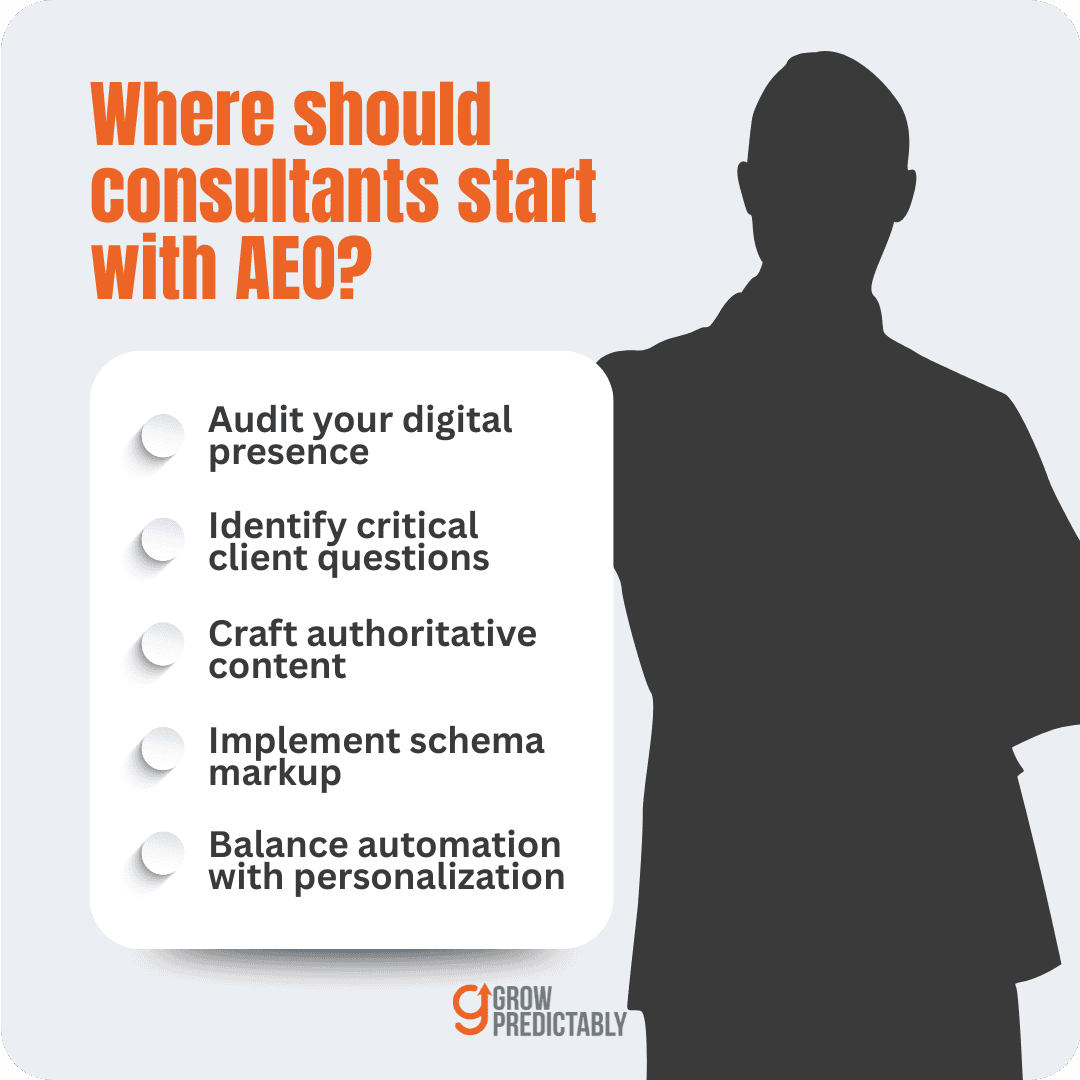
Let’s transform your consultant visibility by mapping Answer Engine Optimization to the Customer Value Journey—creating a clear path from AI visibility to signed contracts.
1. Awareness: Audit Your Digital Presence
Most consultants have blind spots in how AI engines perceive their expertise.
Before adding new content, you need to understand what AI currently “sees” about you.
Quick-Win Checklist:
- Search your name and business in ChatGPT, Google Gemini, and Perplexity
- Note where information is missing, outdated, or incorrect
- Identify which questions about your services yield no results
- Check if your expertise areas appear in AI-generated answers for relevant topics
Financial consultant Sarah discovered AI engines knew her name but failed to connect her with “retirement planning for business owners”—her primary service.
This awareness gap became her first priority.
Now that your digital presence is audit-ready, how do you uncover what your clients really want?
Let’s explore the Engagement phase.
2. Engagement: Identify High-Value Client Questions
Many consultants overlook client FAQs, losing valuable traffic to competitors whose content directly answers what prospects are asking AI systems.
Quick-Win Checklist:
- List the top 20 questions clients ask during discovery calls
- Research “People Also Ask” sections for your expertise areas
- Review client emails and meeting notes for recurring questions
- Ask Google Gemini: “What questions do people ask about [your service]?”
Remember to prioritize questions that signal buying intent.
“What is marketing automation?” shows curiosity, but “How much should a small business invest in marketing automation?” signals a potential client ready to invest.
With your questions identified, you’re ready to create content that AI engines love to reference.
3. Subscribe: Craft Conversational and Authoritative Content
AI engines don’t just scan for keywords—they evaluate how well your content answers specific questions with authority and clarity.
Quick-Win Checklist:
- Create dedicated FAQ pages with complete, nuanced answers
- Structure content as direct responses to questions
- Include statistics, case studies, and expert quotes
- Write in a conversational, natural tone
- Break complex answers into scannable sections
One legal consultant saw his visibility jump when he transformed his “Services” page into a “How We Help” page structured around client questions rather than service descriptions.
Your content is ready, but how do you make sure AI engines understand its structure?
That’s where schema markup comes in.
4. Convert: Implement Schema Markup
Schema markup is like giving AI engines a map to your expertise.
Without it, they might miss the treasures in your content.
Quick-Win Checklist:
- Add FAQPage schema to question-and-answer content
- Implement Person schema for yourself and key team members
- Use ProfessionalService schema to define your offerings
- Add Review schema for client testimonials
- Test implementation with Google’s Rich Results Test
Schema markup might sound technical, but tools like Merkle’s Schema Generator make it accessible even for non-technical consultants.
Once your schema is optimized, how do you make sure AI platforms actually notice your content?
Let’s find out next.
5. Ascend: Balance Automation with Personalization
The magic of AEO isn’t replacing your personal expertise—it’s amplifying it to reach more potential clients while maintaining your unique value.
Quick-Win Checklist:
- Create content that showcases your unique methodology
- Include personal case studies that AI can reference
- Develop a distinctive “voice” that comes through in all content
- Maintain consistency between AI-visible content and your actual services
- Regularly update content to reflect evolving expertise
One marketing consultant found success by creating a unique framework name for her approach.
When potential clients asked AI engines about marketing strategy, her framework began appearing in responses, creating immediate differentiation.
The beauty of effective AEO is that it enhances rather than diminishes the personal connection.
By structuring your expertise in AI-friendly ways, you’re making your unique approach more accessible to those who need it most.
In the next section, we’ll explore the tech stack behind capturing those AI-ready leads—turning visibility into booked calls and signed contracts.
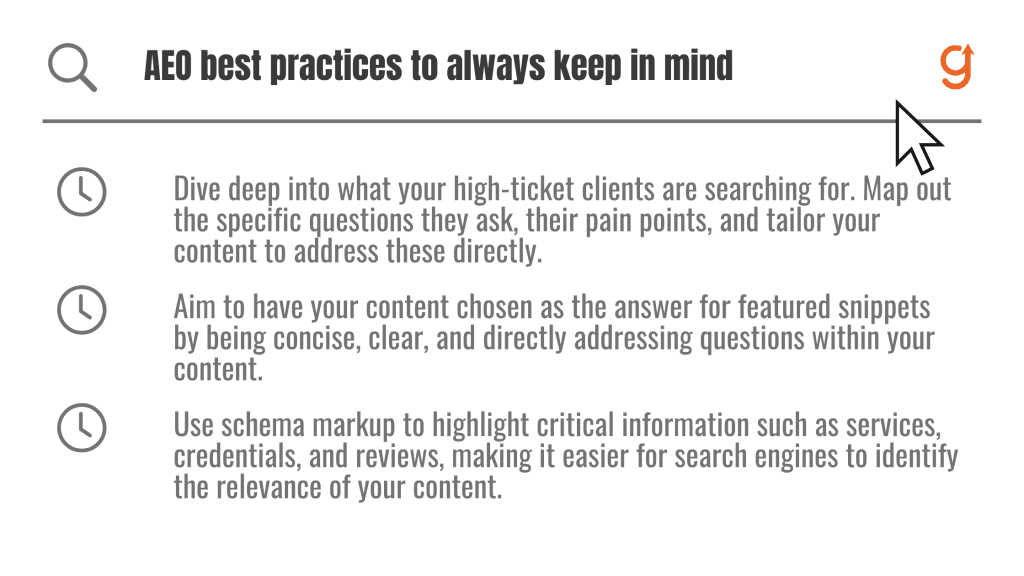
What Tools Can Help With Your AEO Success?
Do you know which tools separate AEO leaders from laggards, and how to choose the right ones for your consulting business?
The shift from traditional SEO to Answer Engine Optimization has made having the right tech stack more than just helpful—it’s the difference between being visible to AI systems or becoming digitally invisible.
AI Content Optimization Tools
AI content optimization tools are here to help you create content that resonates with both human readers and AI systems.
These tools analyze your content and provide recommendations to improve its clarity, structure, and relevance.

For Small Consulting Practices:
- MarketMuse offers content planning and optimization features that help identify gaps in your expertise coverage.
- Frase.io provides AI-powered content briefs and optimization suggestions based on top-performing content.
For Mid-Size to Large Consulting Firms:
- Clearscope delivers in-depth content analysis with term recommendations and readability scores.
- SurferSEO combines content optimization with SERP analysis to help you create content that ranks.
💡 Quick Win: Run your three most-visited service pages through Frase.io’s content optimizer to identify question gaps that AI engines might be looking for but you’re not answering.
Schema Markup Generators
Schema markup is the language that helps AI engines understand your content structure. These tools make implementing schema much easier, even if you’re not technically inclined.
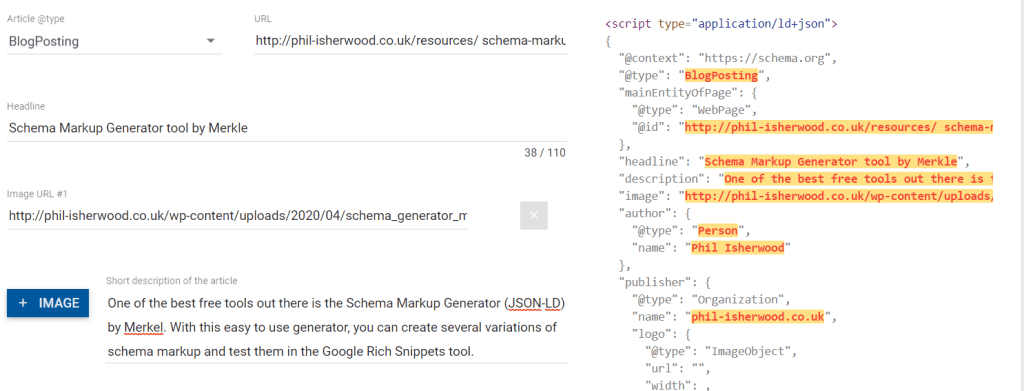
Beginner-Friendly Options:
- Schema Markup Generator by Merkle offers a visual interface for creating schema without coding knowledge.
- Schema App provides templates specifically designed for service businesses.
Advanced Solutions:
- Schema Pro WordPress Plugin automates schema implementation across your entire site.
- JSON-LD Playground gives you complete control over custom schema creation.
💡 Quick Win: Try Merkle’s visual schema editor now to create FAQPage schema for your top three client questions, and see immediate benefits in how AI engines interpret your expertise.
Reputation Management Tools
Your online reputation directly impacts how AI engines evaluate your authority. These tools help you manage and leverage client feedback effectively.
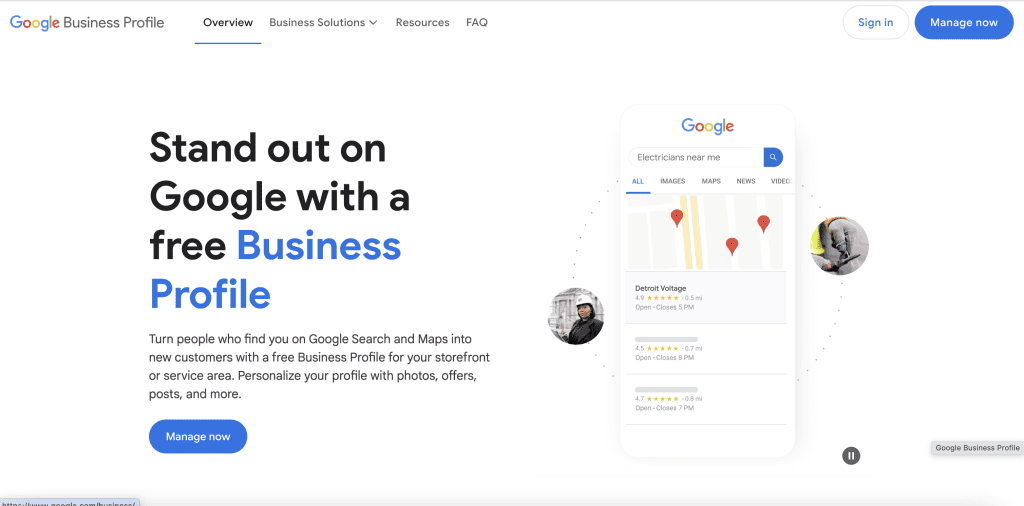
For Individual Consultants:
- Google Business Profile remains essential for local visibility and review collection.
- Trustpilot offers free plans that help collect verified reviews AI engines trust.
For Established Consulting Firms:
- Podium centralizes review management across multiple platforms.
- BirdEye provides review generation, monitoring, and response management.
💡 Quick Win: Set up automated review requests through Trustpilot for clients who complete projects with you, timing the request when they’re most satisfied with your results.
AI Visibility Trackers
These emerging tools help you monitor how your content performs specifically in AI-powered search environments.
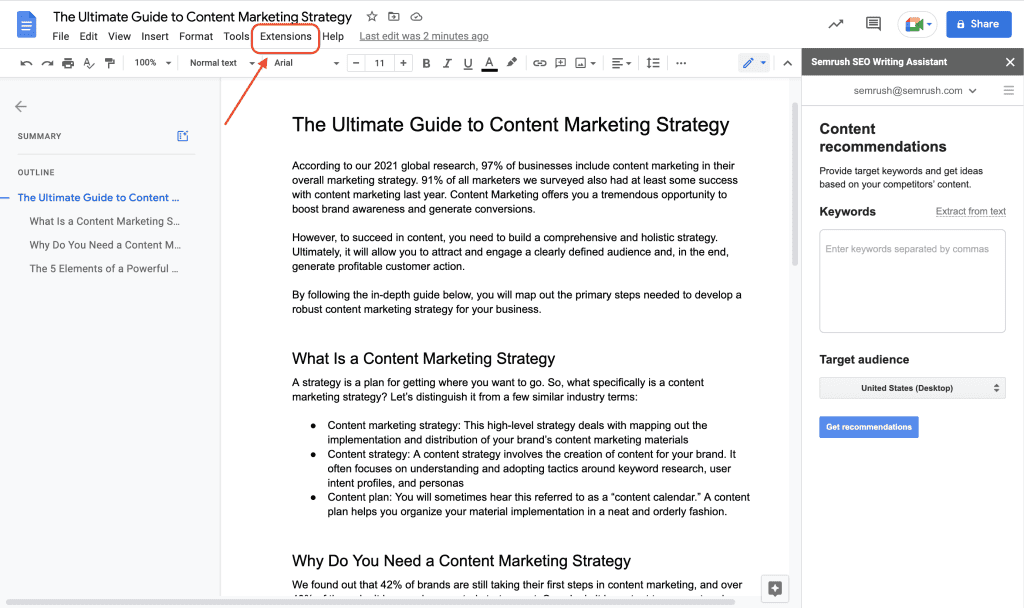
Entry-Level Options:
- SEOClarity’s AI Visibility Tracker monitors your presence in AI-generated answers.
- Semrush AI Writing Assistant helps optimize content for AI readability.
Enterprise Solutions:
- BrightEdge AI Reports provide detailed analysis of AI visibility across multiple platforms.
- Conductor Searchlight offers AI answer tracking and competitive analysis.
💡 Quick Win: Use SEOClarity’s free trial to check if your most important consulting services are appearing in AI-generated answers, then prioritize optimization efforts accordingly.
Tool Comparison by Consultant Type
| Consultant Type | Recommended Tool Stack | Implementation Priority |
|---|---|---|
| Solo Financial Consultant | Frase.io + Schema Markup Generator + Trustpilot | 1. Schema for credentials 2. Review collection 3. FAQ content optimization |
| Legal Consulting Firm | Clearscope + Schema Pro + BirdEye | 1. Service schema implementation 2. Reputation management 3. Content restructuring |
| Marketing Agency | SurferSEO + JSON-LD Playground + SEOClarity | 1. Competitive AI visibility tracking 2. Custom schema creation 3. Content optimization |
| Management Consultant | MarketMuse + Schema App + Google Business Profile | 1. Expertise content gaps 2. Professional credential schema 3. Local review building |
Some of these tools will be showcased in more detail through our upcoming case studies, demonstrating their practical impact on consulting businesses just like yours.
For Beginners:
- Start with one tool from each category rather than trying to implement everything at once.
- Focus first on schema markup for your credentials and services—this gives AI engines the structured data they need most.
- Set a weekly calendar reminder to spend just 30 minutes on AEO implementation.
For Advanced Users:
- Create custom schema combinations that link your expertise, case studies, and client testimonials.
- Develop automated workflows that trigger review requests at optimal client satisfaction points.
- Use API connections between your CRM and schema tools to ensure real-time updates to your expertise markers.
The technical foundation you build now directly impacts how visible your consulting expertise will be to tomorrow’s AI engines.
While these tools provide the infrastructure, the next section will show you the most important indicators that will help you gauge your performance in relation to AEO.
How Can You Gauge Your AEO Performance?
Answer engines are reshaping how clients discover and interact with our content.
To stay ahead, it’s vital to track specific metrics that can give us insights into our AI visibility and performance.
Here’s a breakdown of the KPIs that can set the course for AEO success in our consulting practice.
1. AI Visibility Score
This composite metric tracks how often your content appears in AI-generated answers across platforms like Google Gemini, Perplexity, and ChatGPT.
How to track it:
Use tools like BrightEdge AI Visibility or Semrush’s AI Reports to monitor mentions of your brand, services, and key topics in AI-generated responses.
Start with a baseline measurement, then check monthly.
Quick win:
Set up Google Alerts for your brand name + “according to” to catch when AI engines cite your content.
2. FAQ Featured Snippet Rate
This measures how often your content gets pulled into direct answer boxes or AI responses for questions relevant to your consulting practice.
How to track it:
Monitor your top 20 consulting-related questions using RankRanger or manually through Google Search Console. Track which questions display your content as the featured answer.
Quick win:
Aim for at least 15% of your target questions featuring your content within six months.
3. Conversion Rate from AI Referrals
This tracks how visitors from AI platforms convert compared to traditional search traffic.
How to track it:
Set up custom UTM parameters for links in your schema markup and FAQ content. In Google Analytics, create a segment for these visitors to monitor their conversion behavior.
Why it matters:
Clients who find you through AI answers often have higher intent and trust, potentially leading to higher-quality leads.
4. Review Count & Ratings
The volume, recency, and quality of reviews directly impact your visibility in AI answer engines.
How to track it:
Monitor total review count, average rating, and review velocity (new reviews per month) across Trustpilot, Google Business Profile, and industry-specific platforms.
Quick wins:
Implement an automated review request system that triggers 7 days after client deliverables.
5. Engagement Metrics for AEO Content
These metrics help you understand how users interact with your AEO-optimized content.
How to track it:
Monitor time on page, bounce rate, and scroll depth for pages containing structured FAQ content and schema markup.
Quick wins:
Higher engagement signals to AI systems that your content provides value, potentially boosting your visibility in future answers.
How Can You Leverage Reviews to Manage Your Reputation for AI Search Engines?
Ever wonder what’s secretly driving your visibility in the new AI-powered search landscape?
There’s a hidden currency that can make or break your consulting business in 2025: authentic, structured reviews that AI systems can understand and trust.
Awareness: Building Your Review Foundation
Think of reviews as the stars on your AI map—without them, you’re practically invisible to AI answer engines.
Unlike traditional SEO where backlinks ruled, AI systems like Google Gemini and Perplexity prioritize trust signals that come from verified human experiences.
Start by taking inventory of your current review situation:
- How many reviews do you have across platforms?
- Are they structured with proper schema markup?
- Do they include specific keywords about your consulting services?
The gap between what you have and what AI engines need represents your biggest opportunity.
Engagement: Capturing Client Experiences
The magic happens when you transform casual feedback into structured data points that AI can interpret.
Rather than just asking “How was your experience?”, try these approaches:
- Create service-specific questions (“How did our financial planning help you reach your goals?”)
- Request specific metrics (“Did our consulting help you increase revenue? By how much?”)
- Ask about specific outcomes that match what potential clients search for
💡 Quick Win: Set up an automated email sequence that asks one specific question weekly rather than overwhelming clients with a massive feedback form.
Subscribe: Making Reviews Part of Your Process
Reviews shouldn’t be an afterthought—they’re central to your AEO strategy.
Build review collection into your client journey:
- Set expectations during onboarding that you’ll request feedback
- Create natural touchpoints for gathering insights
- Make the review process ridiculously simple (one-click links, voice recording options)
Convert: Structuring Reviews for AI Comprehension
Here’s where many consultants miss the mark—collecting reviews but not formatting them for AI consumption.
For maximum AEO impact:
- Implement ReviewAction schema markup on your website
- Create FAQ sections that incorporate actual client language
- Link reviews directly to specific services using proper schema relationships
This technical foundation ensures AI systems can connect your reviews to relevant queries, dramatically increasing your chances of being featured in AI-generated answers.
Excite: Amplifying Positive Signals
When clients say wonderful things, make those signals stronger:
- Request reviews on multiple platforms (Google, Trustpilot, industry-specific sites)
- Create case studies based on stellar reviews
- Quote reviews in your schema-marked FAQ sections
This multi-channel approach creates what I call “review resonance”—when AI systems see consistent positive signals across platforms, your trustworthiness score jumps significantly.
Ascend: Automating Your Review Ecosystem
As your consulting practice grows, manual review management becomes unsustainable.
Consider these automation approaches:
- Use GetMoreReviews or similar platforms to streamline collection
- Set up Zapier workflows to notify you of new reviews requiring responses
- Create templates for requesting reviews at different client journey stages
Building Your Review Action Plan
| Phase | Action Item | Tool Recommendation |
|---|---|---|
| Awareness | Audit existing reviews | Yext Review Monitoring |
| Engagement | Create service-specific questions | Google Forms or Typeform |
| Subscribe | Build review requests into client journey | Email automation platform |
| Convert | Implement schema markup | Schema.org ReviewAction |
| Excite | Multi-platform review strategy | Trustpilot + Google Business Profile |
| Ascend | Automate review collection | GetMoreReviews or Zapier workflows |
Remember that each review is both a trust signal for AI and a personal connection point with potential clients.
The consultants who master this balance—structured data that remains authentically human—will dominate the AI answer space.
FAQs
Are You Building Now or Reacting Later?
The AEO strategies we’ve explored throughout this guide—from schema implementation to reputation management—aren’t just tactical adjustments.
They’re the foundation for a fundamental shift in how consulting expertise is discovered, engaged with, and delivered.
The question isn’t whether AI will transform how clients find and work with consultants—it’s whether you’ll be among the pioneers shaping that transformation or scrambling to catch up.
The tools, strategies, and measurement frameworks we’ve covered provide your roadmap.
The emerging trends outlined here show your destination. What remains is the most important factor: your decision to act.
Will you be the consultant who builds for the AI-enabled future now, or the one who reacts when that future has already arrived?
The answer to that question might just determine whether your consulting practice thrives or merely survives in the age of answer engines.



